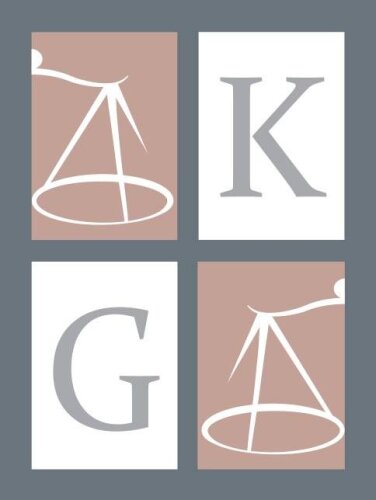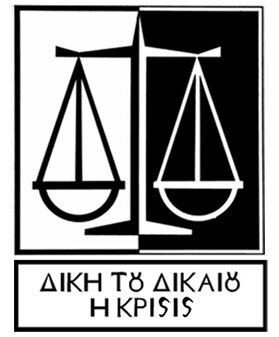Best Toxic Mold Lawyers in Cyprus
Share your needs with us, get contacted by law firms.
Free. Takes 2 min.
Or refine your search by selecting a city:
List of the best lawyers in Cyprus
About Toxic Mold Law in Cyprus
Toxic mold refers to certain molds, usually black molds, that can pose serious health risks to humans and animals. In Cyprus, dealing with toxic mold involves understanding not only the health implications but also the legal responsibilities of property owners and tenants. Mold-related legal issues can emerge in various contexts, including residential properties, commercial spaces, and public buildings. Although specific laws targeting toxic mold may not be well-established in Cyprus, existing health, safety, and property maintenance regulations often address the responsibilities of landlords and property managers concerning mold prevention and remediation.
Why You May Need a Lawyer
Legal assistance may become necessary in several situations involving toxic mold in Cyprus:
- Tenant-Landlord Disputes: Tenants may need legal help when landlords fail to address mold problems that violate rental agreements or health standards.
- Property Damage: Homeowners or business owners facing significant property damage due to mold infestation might require legal assistance to handle insurance claims or disputes with repair contractors.
- Health Issues: Individuals suffering health problems linked to mold exposure might seek legal guidance to pursue compensation claims.
- Disclosure Issues: Buyers of real estate may need legal aid if they discover mold after a purchase, especially if it was not disclosed during the sales process.
Local Laws Overview
Several local laws and regulations impact how toxic mold issues are handled in Cyprus:
- Tenant Rights: Rental agreements in Cyprus might be subject to clauses concerning property maintenance and habitability, holding landlords accountable for removing mold and dampness.
- Health and Safety Standards: Workplace and residential buildings are required to comply with hygiene standards that often include mold prevention measures to ensure occupant safety.
- Property Regulations: Building codes and property laws compel property owners to maintain safe living conditions, which implicitly includes managing mold issues.
- Environmental Regulations: While not specific to mold, general environmental safety regulations may provide frameworks for addressing severe mold outbreaks.
Frequently Asked Questions
1. What is toxic mold, and why is it harmful?
Toxic mold refers to mold species that produce mycotoxins, which can cause health issues like respiratory problems, allergic reactions, and neurological effects. Extended exposure can exacerbate these health risks.
2. How can I tell if I have a mold problem in my property?
Common signs include visible mold growth, a persistent musty odor, presence of moisture or water damage, and health symptoms in occupants that improve outside the property.
3. Who is responsible for mold remediation, the landlord or the tenant?
Generally, landlords are responsible for ensuring their properties meet health guidelines, which includes addressing mold problems, especially when they affect habitability.
4. Can I sue a former property owner for undisclosed mold issues?
Yes, if mold was a pre-existing issue that was not disclosed during the sale, legal action may be possible based on breach of contract or misrepresentation.
5. What should I do if my landlord is unresponsive to a mold problem?
Document the problem and any communications with the landlord, and then seek legal advice on how to enforce your tenancy rights.
6. Are there any legal limits to mold exposure in Cyprus?
While specific local limits might not be in place, international health guidelines, often adopted by Cyprus, set thresholds for safe mold exposure levels.
7. Can toxic mold affect my insurance claims?
Insurance coverage for mold damage varies, so it’s important to review your policy details or consult with a lawyer if your claim is denied.
8. How long do I have to file a complaint or lawsuit for mold-related issues?
Legal time limits, or statutes of limitations, can vary, so it's advisable to seek legal guidance promptly to protect your rights.
9. What steps are involved in mold remediation?
Remediation typically involves identifying moisture sources, removing affected materials, cleaning surfaces, and restoring any damaged property.
10. How can I prevent future mold issues?
Maintain good ventilation, fix leaks promptly, use dehumidifiers, and ensure regular property maintenance to prevent mold growth.
Additional Resources
Several resources and organizations can provide assistance and additional information on toxic mold issues in Cyprus:
- Environmental Department of Cyprus: Provides guidelines on environmental health concerns, including mold.
- Local Health Clinics and Hospitals: Offer medical evaluations and information about mold-related health impacts.
- Real Estate Associations: Often provide resources and advice for property management and tenant-landlord relations.
- Consumer Protection Service: May assist with complaints related to undisclosed property defects.
Next Steps
If you suspect or confirm a toxic mold issue and require legal assistance, consider the following steps:
- Consult a Lawyer: Contact lawyers specializing in property law or environmental health for an initial consultation.
- Gather Evidence: Collect any relevant documents, photos, reports, and communication records related to the mold issue.
- Research Your Rights: Understand your legal rights and responsibilities in relation to mold issues under Cyprus law.
- Seek Professional Inspection: Hire certified professionals to assess and report the mold problem, which can support your legal case.
- Contact Relevant Authorities: Reach out to health departments or property regulators if immediate health risks are present.
Lawzana helps you find the best lawyers and law firms in Cyprus through a curated and pre-screened list of qualified legal professionals. Our platform offers rankings and detailed profiles of attorneys and law firms, allowing you to compare based on practice areas, including Toxic Mold, experience, and client feedback.
Each profile includes a description of the firm's areas of practice, client reviews, team members and partners, year of establishment, spoken languages, office locations, contact information, social media presence, and any published articles or resources. Most firms on our platform speak English and are experienced in both local and international legal matters.
Get a quote from top-rated law firms in Cyprus — quickly, securely, and without unnecessary hassle.
Disclaimer:
The information provided on this page is for general informational purposes only and does not constitute legal advice. While we strive to ensure the accuracy and relevance of the content, legal information may change over time, and interpretations of the law can vary. You should always consult with a qualified legal professional for advice specific to your situation.
We disclaim all liability for actions taken or not taken based on the content of this page. If you believe any information is incorrect or outdated, please contact us, and we will review and update it where appropriate.
Browse toxic mold law firms by city in Cyprus
Refine your search by selecting a city.














